Effective piles/haemorrhoid relief with professional care
Our consultant surgeon at The Colorectal Clinic

Dr Wong Soong Kuan
FAMS (General Surgery)
Our experienced surgical team specialises in the comprehensive management of colorectal conditions. Leading the team is Consultant Surgeon Dr. Wong Soong Kuan, who brings over 24 years of expertise from his tenure at Changi General, Singapore General, and Alexandra Hospitals, followed by more than a decade in private practice.
He has treated many cases of haemorrhoids, along with other anorectal conditions like fistula-in-ano and fissures. Dr. Wong’s training includes three years of specialised colorectal surgery training, with clinical fellowships at Singapore General Hospital, the University of Minnesota, and The Cleveland Clinic in Ohio. He also dedicated an entire year to mastering minimally invasive surgical techniques for cancer treatment.
Laparoscopic Fellowship (Cleveland Clinic Ohio, USA)
Member of the Society of Colorectal Surgeons (Singapore)
Adjunct Assistant Professor (Yong Loo Lin School of Medicine)
Recognise these symptoms? You could have piles/haemorrhoids.

Pain or discomfort when sitting.
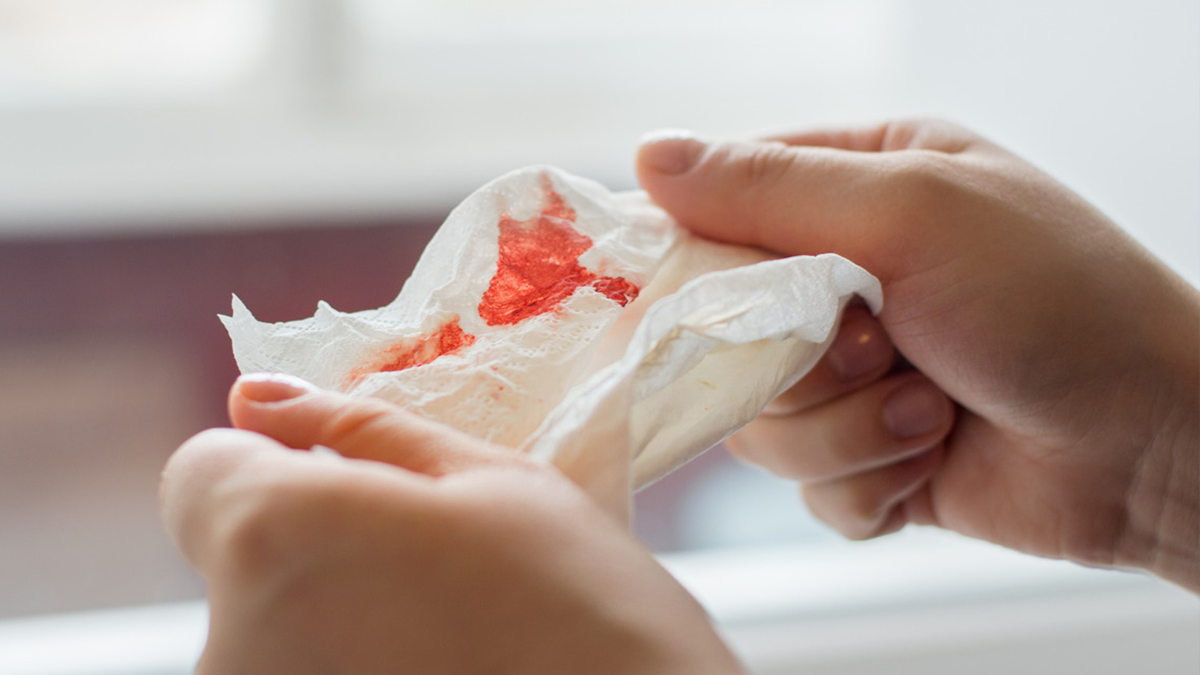
Bleeding during bowel movements.
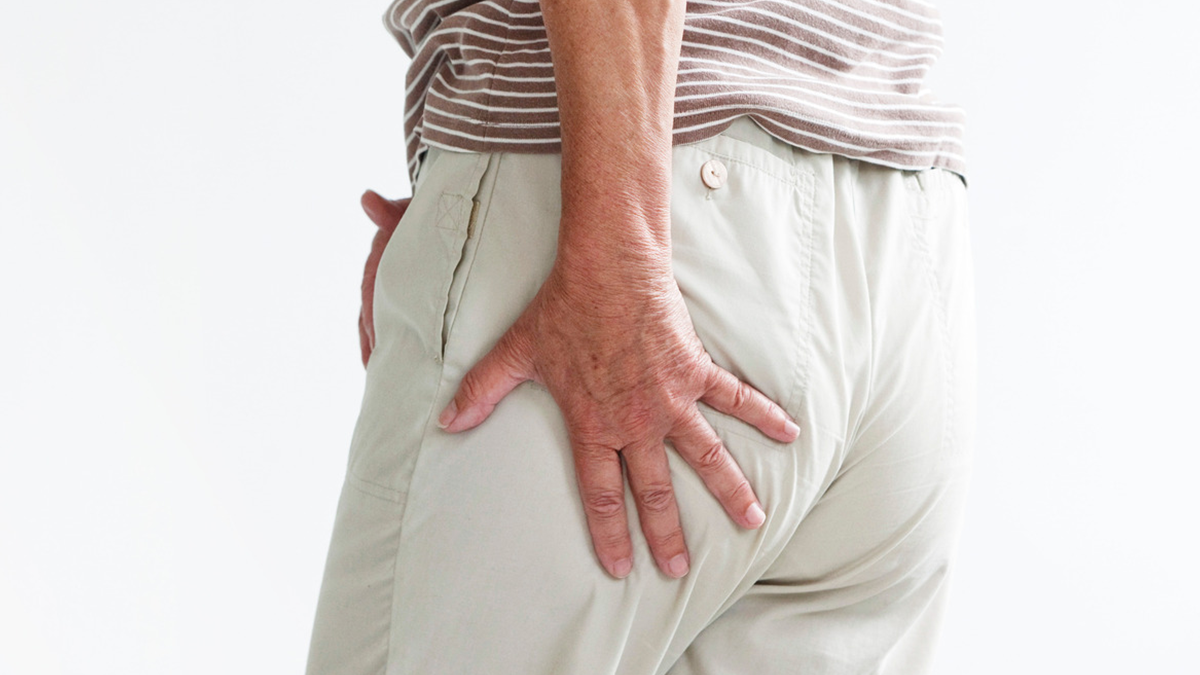
Noticeable swelling or lumps around the anal area.
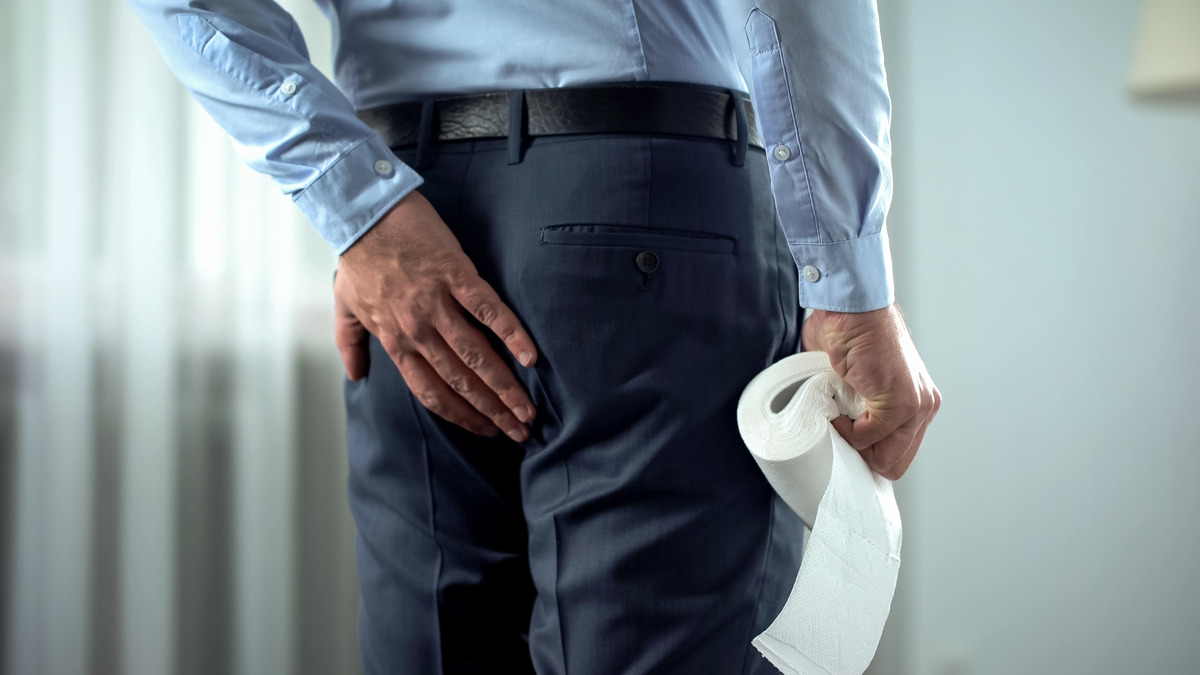
Irritation or itching in the anal area.
Learn about the 3 types of piles/haemorrhoids and how they affect you
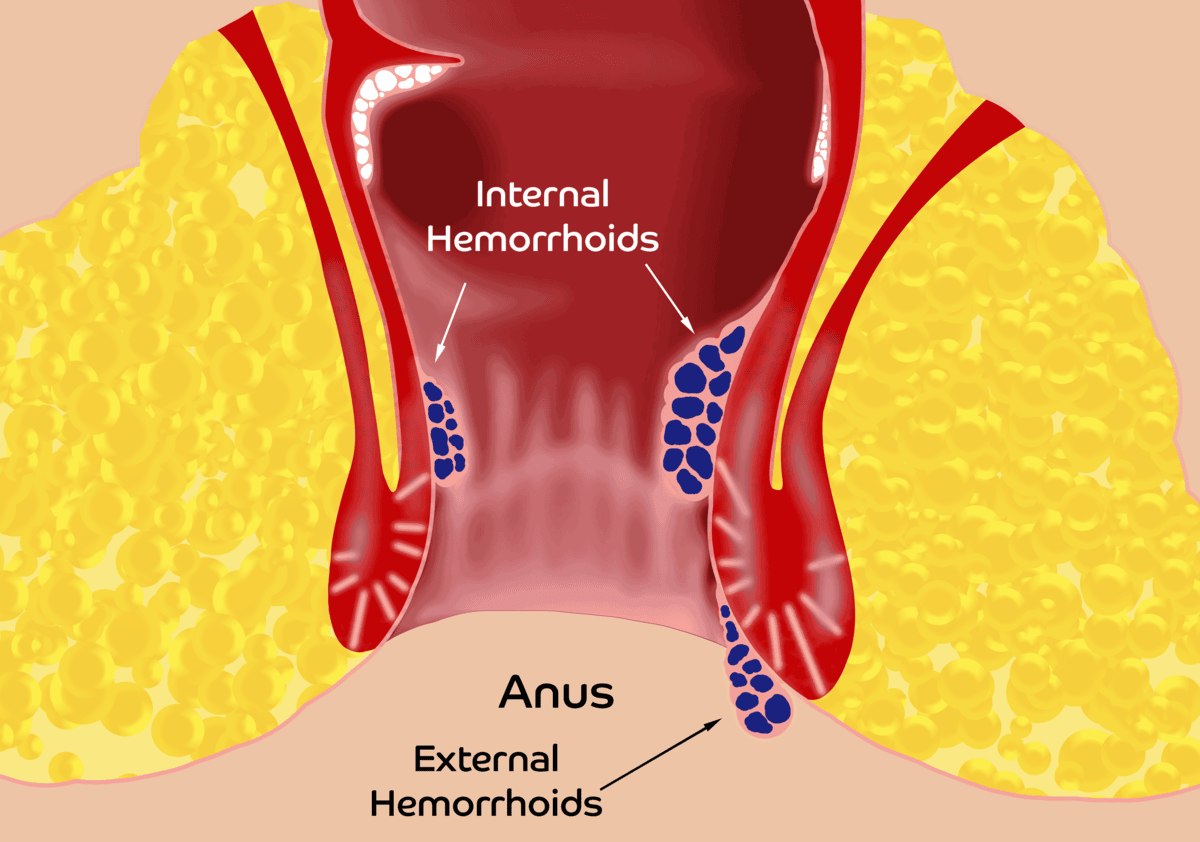
Internal piles/haemorrhoids
- Located inside the rectum.
- Painless but can be irritated by bowel movements.
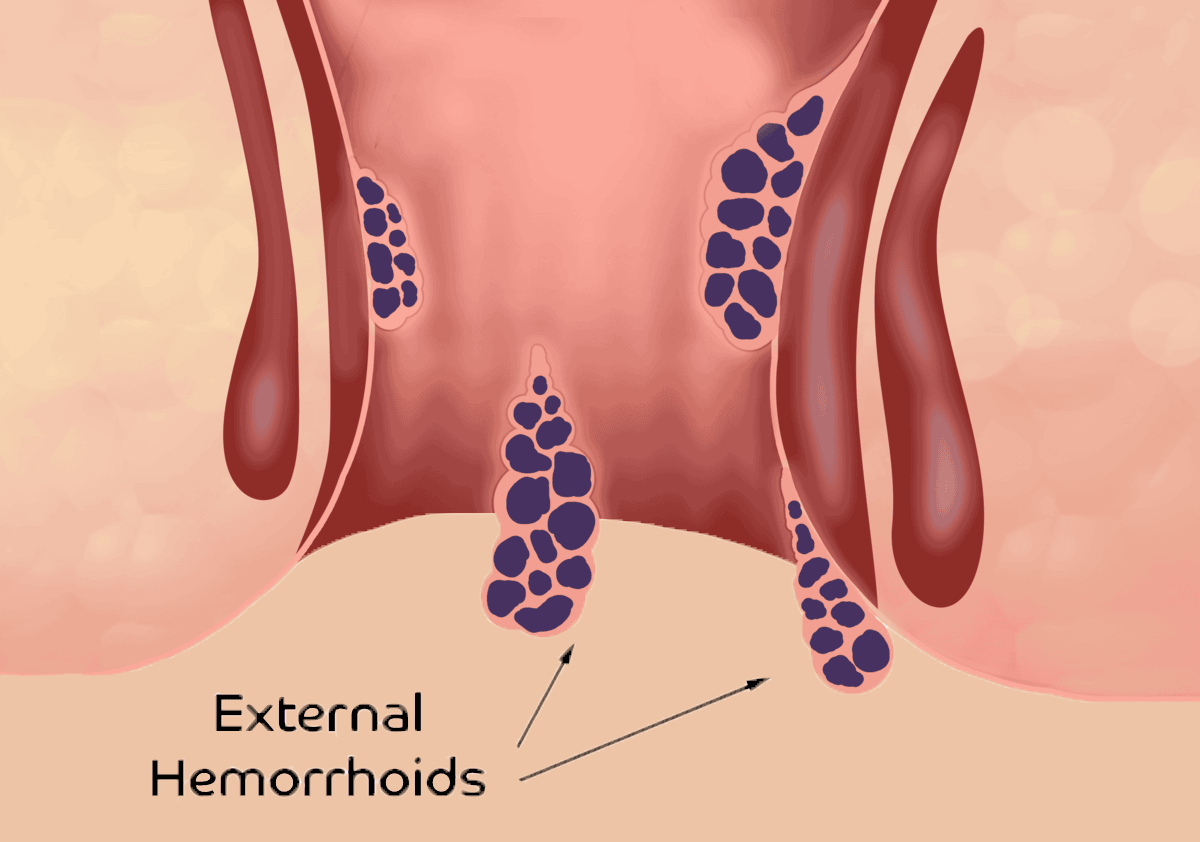
External piles/haemorrhoids
- Located around or on your anus but may not always be visible.
- Can cause swelling and pain, affecting your daily routine.
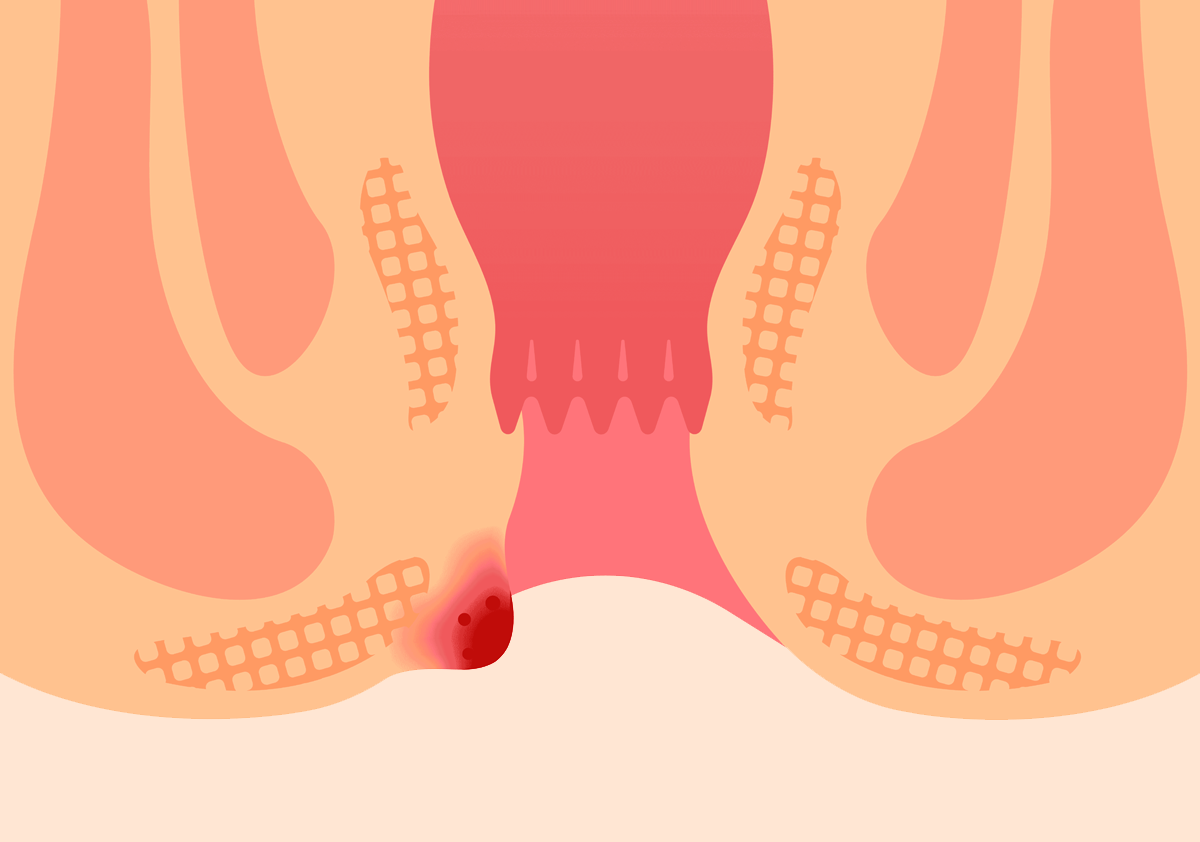
Prolapsed piles/haemorrhoids
- Occur when internal haemorrhoids protrude outside the anus.
- Can lead to discomfort and require medical attention.
Are you at risk? 6 common factors behind piles/haemorrhoids
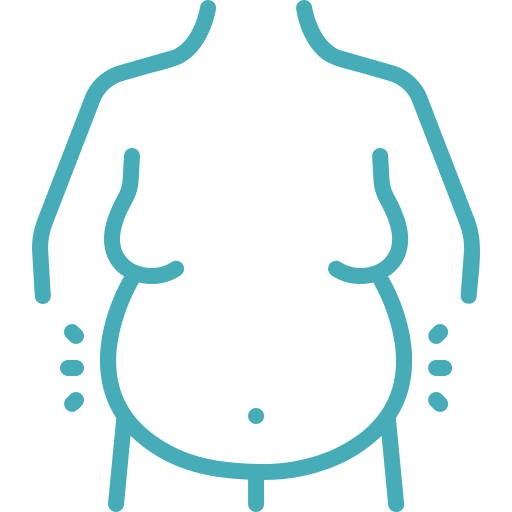
Obesity
Excess body weight can increase pressure on the lower abdomen

Constant heavy lifting
Regularly lifting heavy objects or using improper techniques can lead to added pressure on the lower extremities.
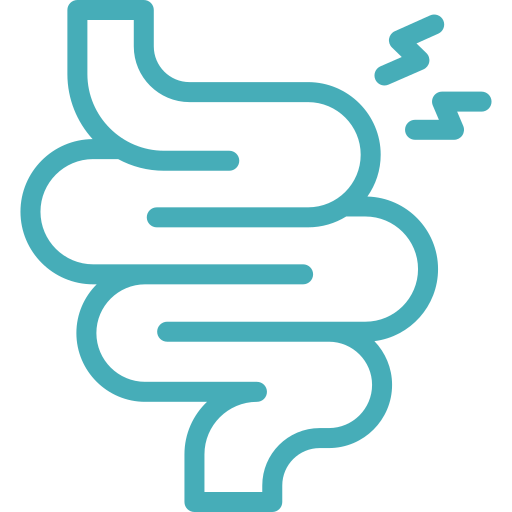
Straining during bowel movements
Constipation or prolonged sitting in the toilet can cause pressure on your rectal area.
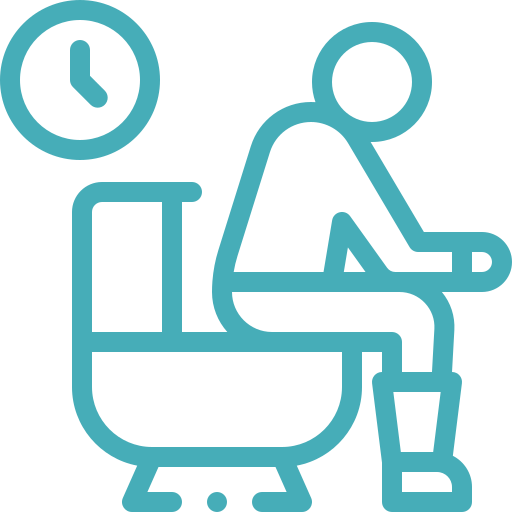
Sedentary lifestyle
Prolonged sitting can lead to significant pressure being placed on the rectal area.

Low-fibre diet
A diet lacking in fibre makes stools harder, increasing the risk of haemorrhoids.
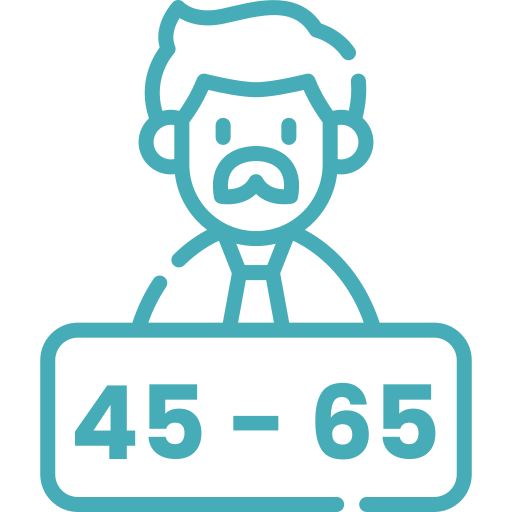
Between 45 to 65 years old
Individuals between the ages of 45-65 are at higher risk of developing haemorrhoids, regardless of gender.
Haemorrhoids affect more than just your body - Here’s what you need to know
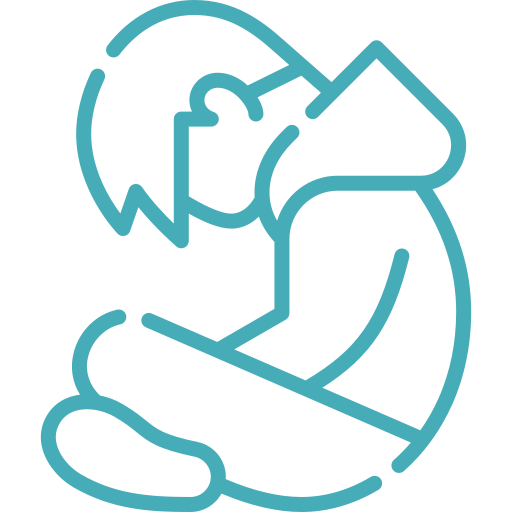
Lack of confidence and embarrassment:
The discomfort and symptoms associated with haemorrhoids, such as pain, itching, and bleeding, can lead to feelings of embarrassment and a loss of confidence.

Sleep disturbances:
Pain and discomfort from haemorrhoids can interfere with your ability to get a good night's sleep. These disturbances can lead to chronic fatigue, impacting your energy levels, mood, and productivity during the day.
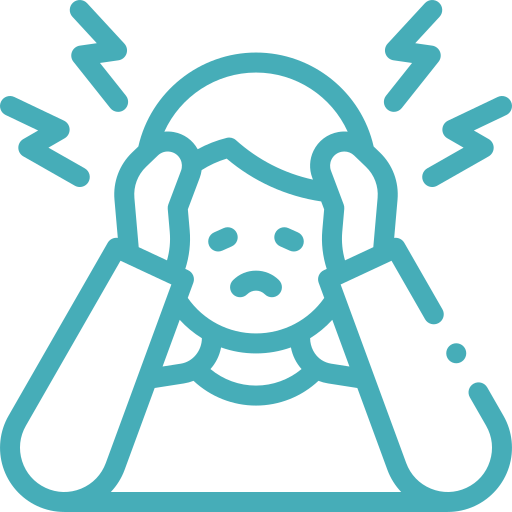
Stress and anxiety:
Living with haemorrhoids can cause ongoing anxiety and stress, particularly if you're unsure of the severity of your condition or if it will worsen over time.
Why does timely medical care matter in managing piles/haemorrhoids?

Professional diagnosis:
The symptoms of haemorrhoids can be similar to other conditions, such as anal fissures or colorectal cancer. A doctor can provide an accurate diagnosis and a proper treatment plan.

Preventing complications:
Untreated haemorrhoids can worsen over time, leading to more severe symptoms such as increased pain, prolonged bleeding, and the need for surgical intervention.

Customised treatment options:
A doctor can offer personalised treatment options based on the severity of your condition.
Find relief today - Explore our piles/haemorrhoid treatment options
We offer a range of treatment options tailored to the severity of your condition. Click on a treatment to learn how we can help you find relief:
Ligation (Rubber Band Ligation)
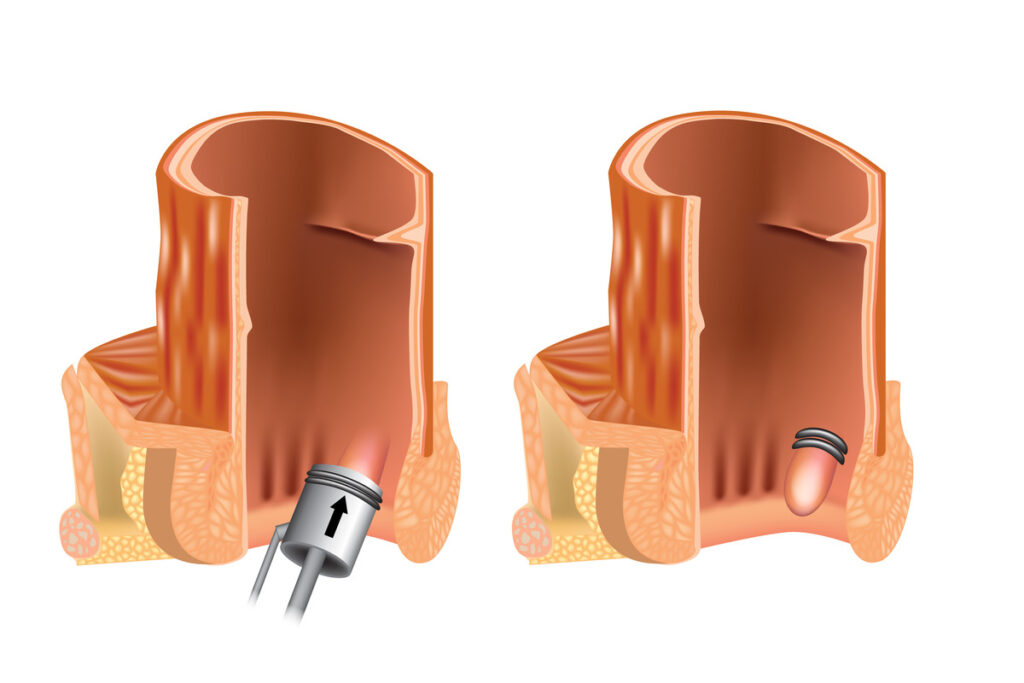
Ligation (Rubber Band Ligation)
Closed Hemorrhoidectomy
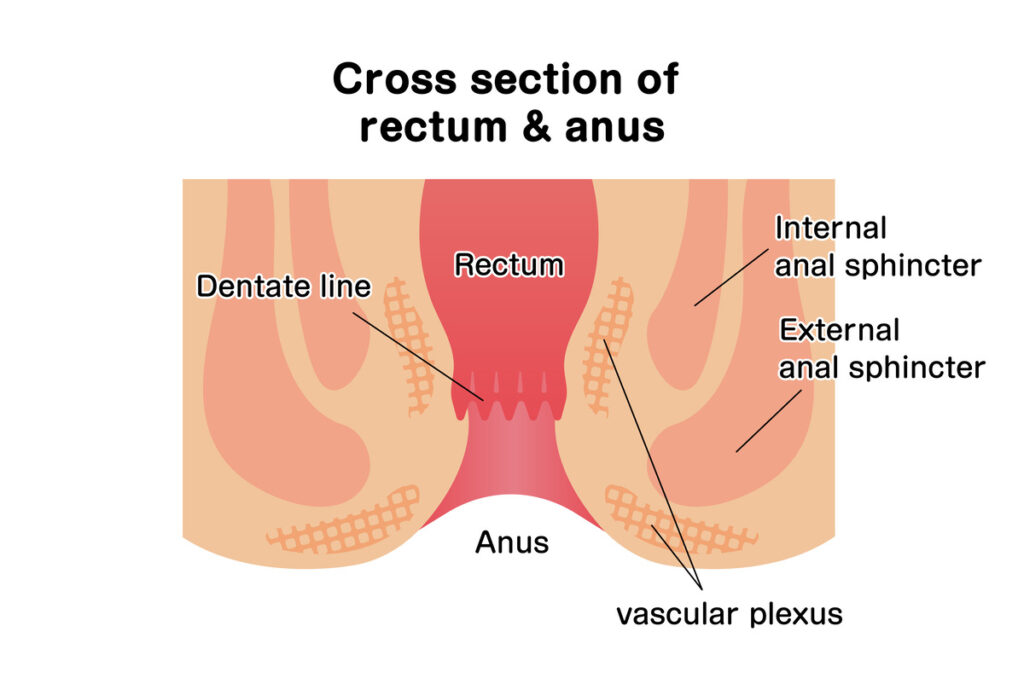
Closed Hemorrhoidectomy
Stapled Hemorrhoidectomy (PPH)
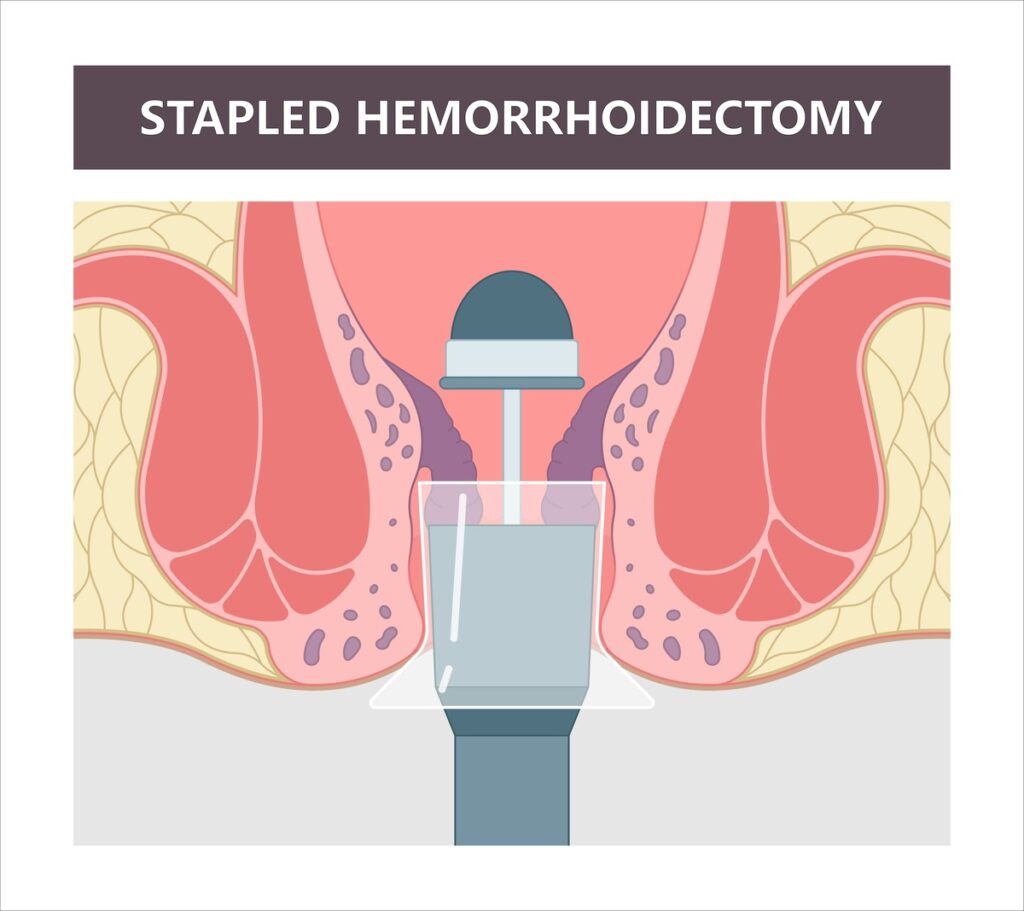
Stapled Hemorrhoidectomy (PPH)
Hemorrhoids Energy Therapy

Hemorrhoids Energy Therapy
How long does recovery take after piles/haemorrhoid surgery?

Closed Hemorrhoidectomy
Typically requires 2-4 weeks for recovery, with some discomfort and pain during the first week.

Stapled Hemorrhoidectomy (PPH)
The recovery process is typically quicker, often within 1-2 weeks, with less pain compared to traditional hemorrhoidectomy.

Hemorrhoids Energy Therapy
HET requires no downtime, allowing most individuals to return to work and normal activities within 1–2 days. However, all haemorrhoid treatments require time for the haemorrhoids to shrink and settle into their desired position.
At The Colorectal Clinic, we understand the concerns you may have about surgery and the recovery process.
When you choose our team, you can be assured that we will be with you throughout your journey, providing professional guidance and support at every stage.
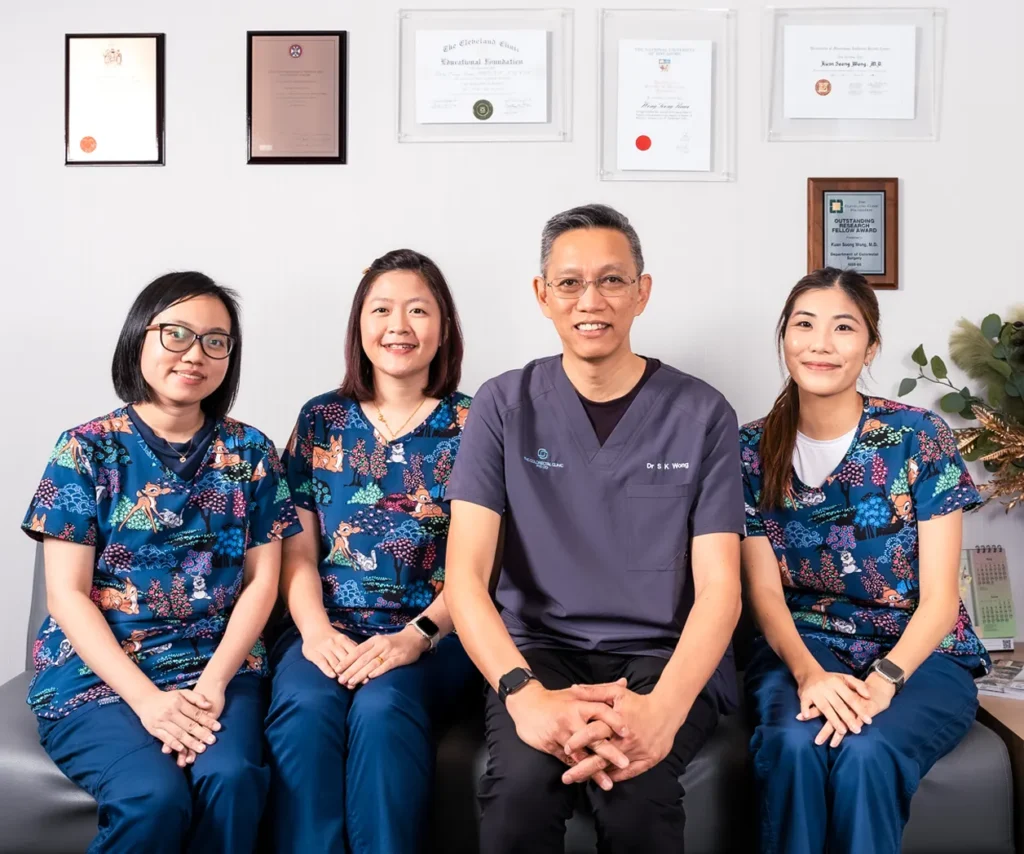
Colorectal Clinic - Your partner in colorectal health
Get started today
Reclaim your comfort and confidence
Take the first step towards relief
FAQ
What are piles/haemorrhoids?
Piles/Haemorrhoids are swollen veins in the lower rectum or anus, similar to varicose veins. They can be internal (inside the rectum) or external (under the skin around the anus).
What are the common symptoms of piles/haemorrhoids?
When should I see a doctor for piles/haemorrhoids?
You should see a doctor if you experience persistent pain or bleeding or if over-the-counter treatments do not improve your symptoms. A professional diagnosis is important if you’re unsure whether your symptoms are due to piles/haemorrhoids or another condition.
What happens if piles/haemorrhoids are left untreated?
If piles/haemorrhoids are ignored or left untreated, they can worsen over time. Mild piles/ haemorrhoids may progress to more severe cases, leading to increased pain, swelling, and prolonged bleeding.
In some cases, untreated piles/haemorrhoids can become thrombosed, where a blood clot forms inside the piles/haemorrhoid, causing severe pain.
Are piles/haemorrhoid treatments painful?
Is piles/haemorrhoid treatment covered by insurance?
Coverage for piles/haemorrhoid treatments varies by insurance plan. It’s recommended to check with your insurance provider or our clinic’s billing department to understand your coverage options.
